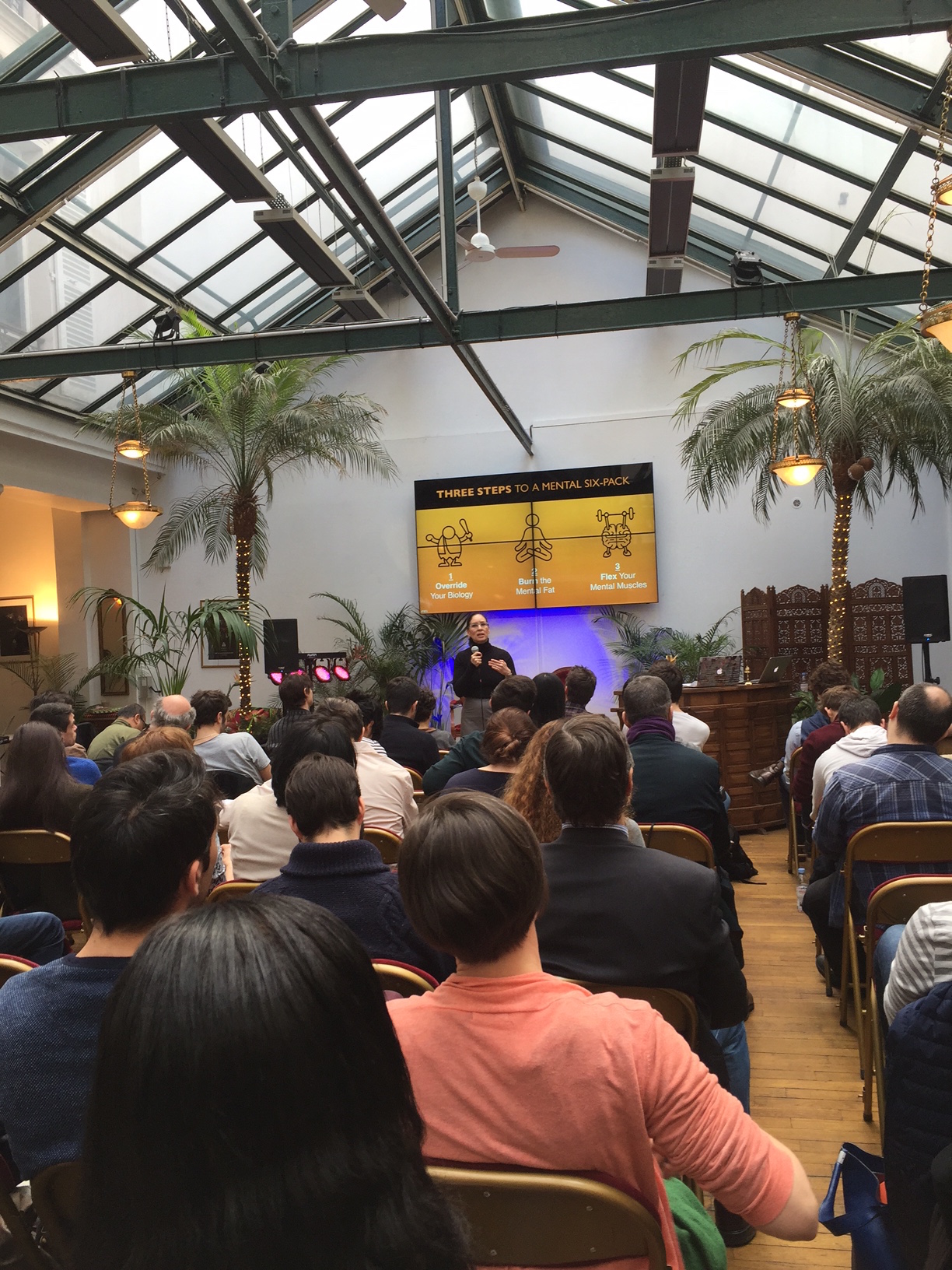Recently, I was in Paris where I gave a talk to 150+ start-up entrepreneurs on how to “get a mental six pack. Speaking about resilience and bouncing back from setbacks, I pointed out how anytime something unwanted happens, we spend an inordinate amount of time and energy in “the judgment zone,” making it bad or wrong. And nothing creative can happen while we’re there.

Not that there’s anything wrong with that, it’s our biology: We’re wired to be on the lookout for threats to our survival. But we’ve also been conditioned to become reactive, judgment-making machines by a society that focuses on outcomes — the massive IPO, the fast-track promotion, the championship trophy— more than process.
As children, pre-societal conditioning, we had definite preferences — check out this video of kids’ reactions to dark chocolate — but just because we didn’t like something didn’t make it wrong. In fact, we often maintained a sense of fascination and curiosity about it.
As adults, we still do, when we don’t attach a specific meaning or particular emotional reference to what’s happened. After my talk, one entrepreneur came up and asked how to spend less time in the judgment zone. When he told me he his business was refinishing and selling vintage furniture, I asked him, “So when you see a scratch on the finish of a desk — do you make it good or bad, right or wrong?” “No,” he said, “I get curious about how it happened.”
We can’t change something once it’s happened. (I’ll give you a second to write that down.) So the only questions are: 1) how long do we want to take to accept what’s happened, even if it’s not what we prefer, and 2) what meaning will we give it going forward. If all the great entrepreneurs you admire had been rejected by 50 VCs before getting funded, wouldn’t that affect the way you felt about your 45th “no”? (Hint: In any case, things tend to play out better if we assume that everything is working out even if it’s difficult to see that it is.)
One of the greatest gifts of life is that there is no built-in meaning. We get to decide.
p.s. Want your team to be more resilient in uncertainty and bounce back quicker from setbacks? Contact me to learn more about “Get a Mental Six-Pack” training.
